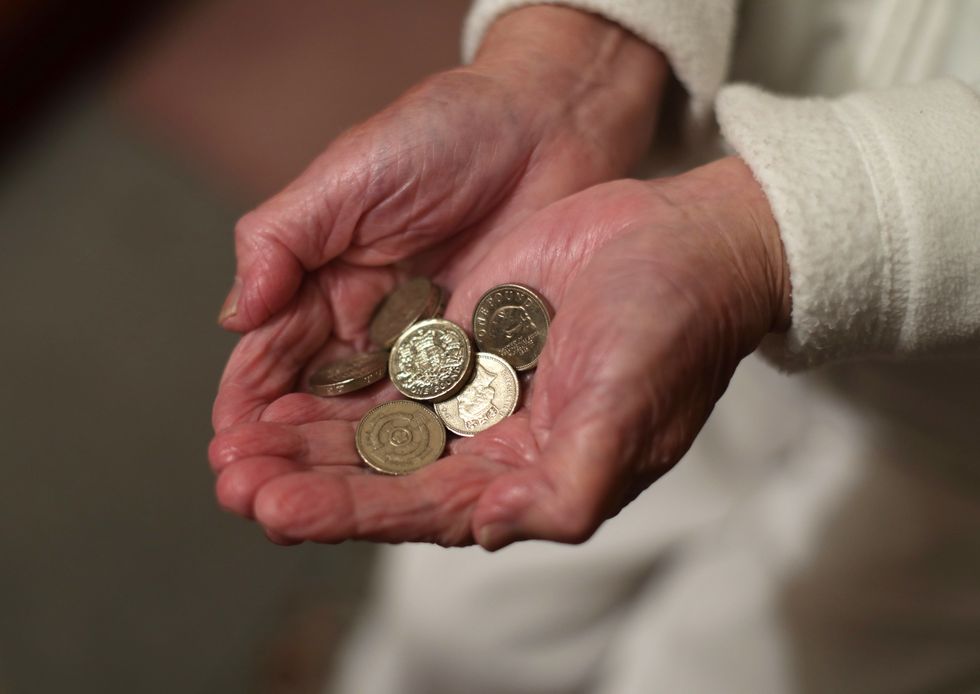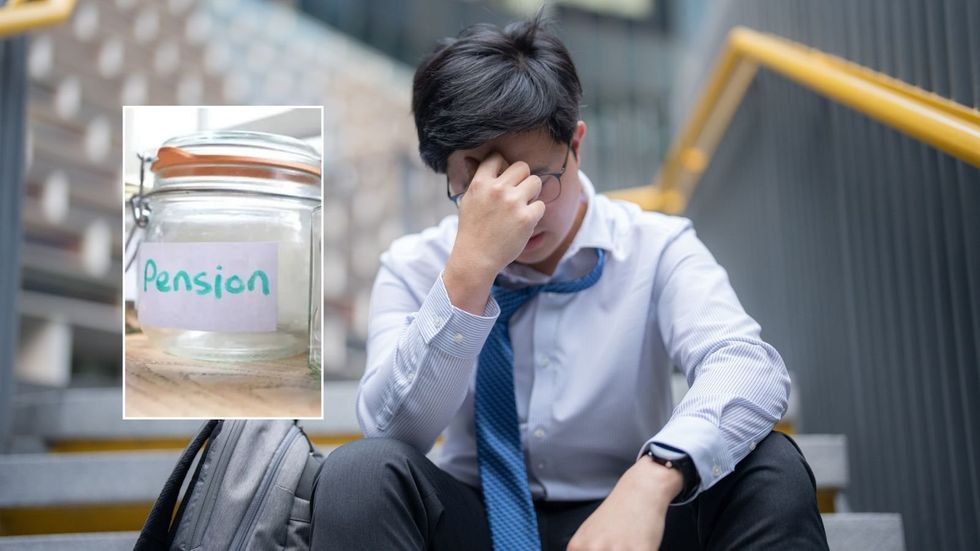UK state pension is the least generous in the G7 - how do other countries compare?

‘Rubbing our noses in it!’ State pension rise will be swallowed up, retiree fears - ‘Doesn’t go anywhere’ |
GBNEWS

British retirees get substantially less in state pension than in other wealthy nation
Don't Miss
Most Read
Latest
Britain’s state pension offers the lowest level of retirement income among the world’s richest nations, giving retirees just 22 per cent of the average wage, new research shows.
The study by Fidelity International compared pension systems across the G7 and found that UK retirees receive far less support than those in Europe, where French pensioners get around 58 per cent of average earnings and Italians about 76 per cent.
The analysis looked at three key measures - how much income pensions replace, how long payments last, and how much governments spend on retirement benefits – with the UK coming last on all counts.
Fidelity said the findings highlight major differences in how countries approach retirement, with Britain relying more heavily on private savings while others provide greater state support.
British retirees depend significantly more on personal savings than their international counterparts, with state benefits constituting merely 40 per cent of their retirement income.
This stands in stark contrast to France and Italy, where government pensions account for over 70 per cent of pensioners' total income.
"These gaps reflect very different approaches to retirement provision. In the UK, the state pension acts as a foundation or top-up, while in France and Italy it represents the mainstay of retirement income," explained Marianna Hunt, personal finance specialist at Fidelity International.
"That means, in the UK, it is critical for individuals to save into private and workplace pensions to secure their financial future."

The burden of retirement planning therefore falls predominantly on individual British workers rather than the state system
| GETTYThe burden of retirement planning therefore falls predominantly on individual British workers rather than the state system. British pensioners also face shorter retirement periods than their G7 peers, typically receiving state pension payments for roughly 20 years.
French retirees enjoy almost 27 years of state support, whilst Japanese pensioners receive benefits for more than 24 years due to greater longevity.
The disparity extends to quality of life, with UK retirees experiencing approximately 12 years of good health during retirement.
This compares unfavourably with France and Japan, where pensioners can anticipate around 16 healthy years whilst receiving state benefits. Germany and Italy match Britain's 12-year figure for healthy retirement, whilst American retirees fare worst with fewer than nine healthy years.
These statistics underscore how British pensioners not only receive less generous payments but also have fewer years to enjoy them.

One way that recipients can hike up their state pension is by postponing the date that they start receiving the benefit
| PAThe differences stem from contrasting approaches to taxation and social security across nations, with Britain maintaining lower tax obligations compared to countries offering more substantial state pensions.
British workers face lighter financial burdens than their French and Italian counterparts, who contribute between nine and 11 per cent of salaries towards social security systems that fund more generous retirement benefits.
"It's important to be cautious when drawing direct parallels - every system has its own rules and funding mechanisms," noted Ms Hunt.
Britain allocates 6.5 per cent of GDP to state pensions, less than other G7 nations, though this proportion continues climbing due to triple lock protections.
The current British state pension stands at £230.25 weekly, increasing to £241 per week, equating to just over £12,500 annually for those qualifying for full payments.

Individual British workers must bridge this retirement income gap through personal savings
| GETTYIndividual British workers must bridge this retirement income gap through personal savings, with analysis showing even modest contribution increases can substantially boost pension pots.
"The key thing for the UK is that people need to be very aware the onus is on them to make up the shortfall," Hunt emphasised.
A 45-year-old earning Britain's average salary of £37,430 could accumulate an additional £22,000 by retirement at 68 through raising pension contributions by just one percentage point, Fidelity's calculations demonstrate.
Younger workers benefit even more dramatically from compound growth, with 25-year-olds potentially adding £96,300 to their retirement funds through the same one per cent increase.
"The good news is that, by acting early, with even small increases to contributions, people can put themselves in a much stronger position to enjoy the retirement they want," Ms Hunt concluded.
More From GB News










